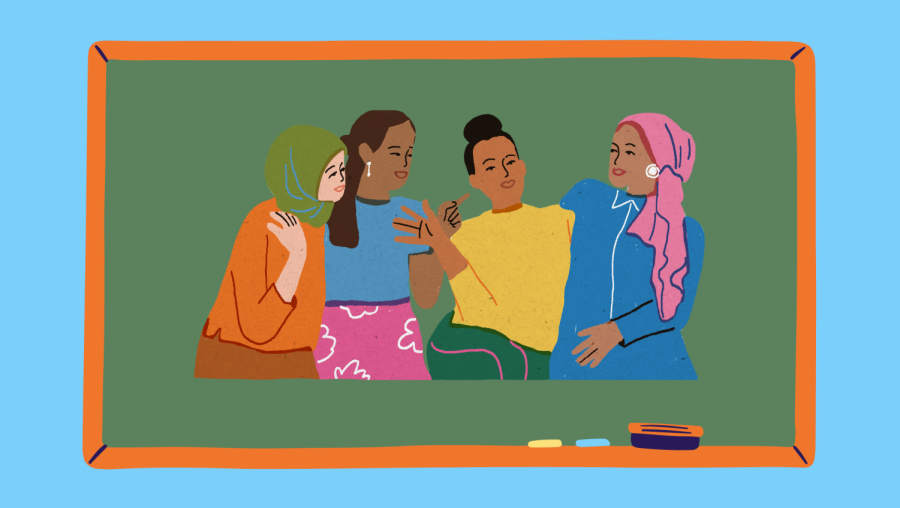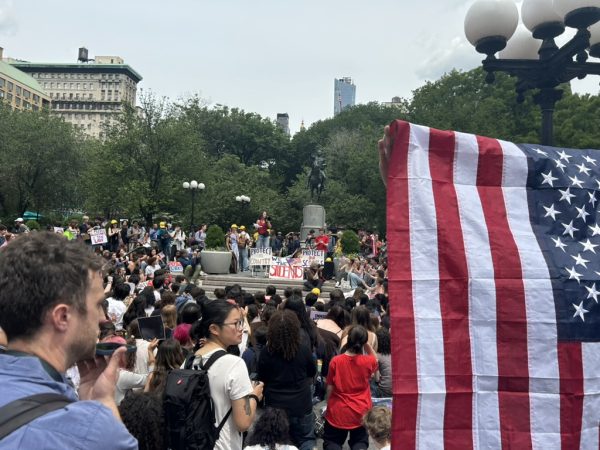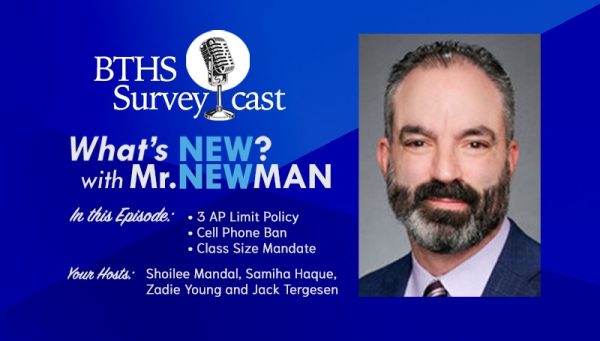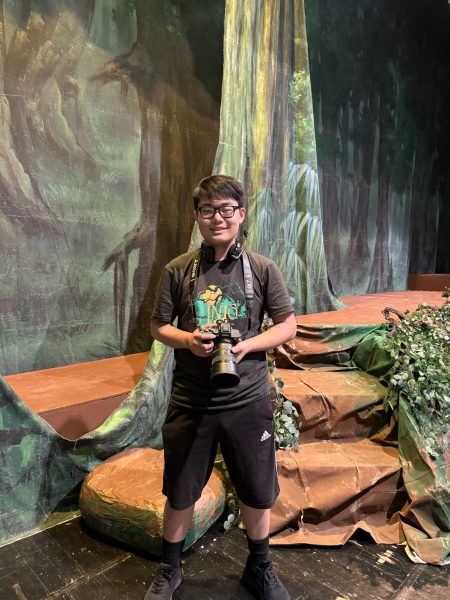Are Brooklyn Tech’s History Courses as Diverse as its Student Body?
The Brooklyn Tech community is made up of a diverse array of cultures, but many feel that some
of these cultures are underrepresented in the history classes available at Tech. To examine if Tech’s history curricula truly represent its student body, The Survey spoke to students and teachers about their experience in social studies classes.
The newest class that will be implemented into Tech’s history curriculum next year, AP African American Studies, is intended to fill many of the gaps that are present in current US history classes regarding Black history. Brooklyn Tech is one of sixty schools in the United States that will offer the pilot version of the class in the fall. The non-AP Black History 365 elective course will also continue to be available to students.
With the availability of classes highlighting Black history at Tech, students will gain an understanding beyond the horizons of their core history classes. Although there has been much controversy surrounding AP African American Studies, notably due to curriculum changes made due to political pressure from politicians such as Florida Governor Ron DeSantis, as well as public backlash, Tech is making strides in providing an in-depth study of Black history.
On the other hand, Tech’s student population is 59% Asian, but there are not any history classes specifically aimed at teaching the history of the various cultures that fall under the Asian American Pacific Islander (AAPI) umbrella. In a poll conducted by The Survey, 25.4% of students said they would definitely take an Asian American history course and 49.2% said they would consider it. The idea of such a course was particularly popular among those with AAPI heritage.
Dr. William Cheung, a history teacher at Tech, said, “It is appalling that there is no dedicated curriculum that is culturally relevant, sustaining, or restorative for Asian-American students even as [the] great power war with China and anti-Asian hate becomes more relevant than ever.”
“In AP World we learned about Asia, but only what the College Board deemed ‘important’, so I feel that I missed out on a lot of information,” said Branden Wong (‘25). “I would love to learn more about Southeast and South Asia.” A class that highlights Asian and Asian American studies could help prevent students from feeling this way.
Naina Mukherjee (‘25) said, “It’s good to have an array of different history classes representing different locations and cultures. We already have AP European History.”
Students who choose to take AP European History are able to learn about European countries in depth, but the scope of the class is very narrow. AP World History is broader, in theory, but the curriculum tends to focus heavily on European countries.
Nehemie Dabire (‘25), an AP World student of Nigerian descent, said, “What I see in the [way the curriculum is taught] is mostly through a lens of colonization and exploitation.”
Susana Sharp (‘25) added, “If [non-white history] isn’t relevant to the interactions with other countries, it’s not focused on.”
However, Mr. Joshua Silverman, an AP World History teacher, noted that the College Board has made strides to make the curriculum more inclusive.
“World history is not a euphemism for how the rest of the world was affected by Europe,” said Silverman. “To their credit, the AP World History class has a much less Eurocentric curriculum than what I was taught in high school. I was taught that world history meant mostly Europe, a little bit of China, a little bit of India, a couple of days in the Middle East, and we talked about Africa only through the lens of Atlantic enslavement. 20% of the exam is about Europe, so the College Board insists that teachers take these regions that are often glossed over seriously.”
Cheung, a tech alum, also noted that Tech has fostered a better learning environment since his time as a student, having created “a more justice oriented-faculty, greater representation of oppressed people in curriculum… and of course, having Black history courses.”
Some students feel that while there may be a need for AP African-American Studies, it may not be practical for students with already demanding schedules. Sean Pan (‘24) said, “There is no more space in my schedule for another AP.”
Other students responded similarly, mentioning that they do not feel comfortable taking on the extra workload that an extra AP class entails, or they would not have any space in their busy schedules.
Principal David Newman acknowledged that many teachers struggle with incorporating enough diverse history into their lessons. “How can you ever say that anything is ‘enough’?” said Newman.
Having taught the majority of history classes offered at Tech before stepping into an administrative role, Newman said that history teachers are forced to “leave a lot of beautiful stories out of the curriculum”.
Newman said that offering a course such as AP African-American Studies at Tech also gives teachers “more resources to infuse Black history into the US History course”. Since Tech is a majority Asian school, he added that he would be open to exploring opportunities to add electives with a greater focus on Asian and Asian American history.












































gotech • Oct 29, 2023 at 3:50 pm
Wonderful article, so insightful! I am glad that my child is in a school that she does not just accepts what’s being offered, but also challenges what needs to be changed!
celina • Aug 4, 2023 at 4:38 pm
great story!